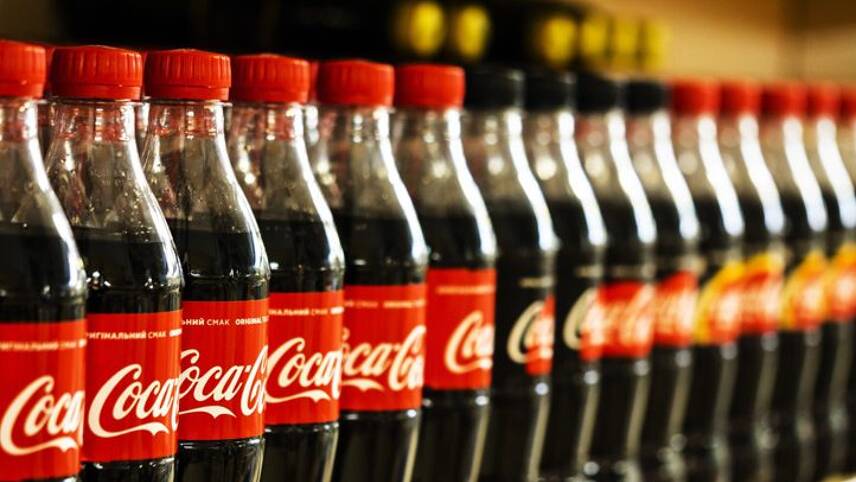Register for free and continue reading
Join our growing army of changemakers and get unlimited access to our premium content

Attention is now being directed towards asking what a post-pandemic economy should look like. CCEP – along with many other companies, investors and NGOs – has articulated to Government the vital need for forward-looking policies that can rethink the status quo. From social media to social structures, from environmental protection to agricultural policies, the opportunity to restructure our economy must be seized so a more inclusive, resilient and zero-carbon future is delivered for all.
Closing the loop
One of the defining features of a post-pandemic economic recovery must be its shape. We need to move away from the current linear economy and transition towards a circular one: an economy that decouples economic activity from the consumption of finite resources and thinks about the end-life of a product as much as the beginning.
Creating a circular economy for our PET bottles is a major objective for CCEP. While we are on track to reach 50% recycled plastic across our portfolio by 2023, we recognise that our ambition to transition towards 100% rPET with zero virgin oil-based plastic within a decade requires significant innovation and investment.
In order to deliver on our vision for a fully circular economy for our packaging, a number of critical changes need to take place.
Collection
Without effective collection of materials, there can be no efficient recycling. Along with a number of other collection initiatives, CCEP is actively supporting policymakers in many markets with the implementation of Deposit Return Schemes (DRS). We believe that DRS will play a vital role in helping us to create a circular economy for our PET bottles. Effective DRS has been a key enabler in the move to 100% rPET for our locally produced PET bottles in Sweden as well as for our latest transition to 100% rPET in two more markets – the Netherlands and Norway – which we announced last week. Evidence has shown that markets with well-designed DRS not only have higher collection rates but also yield a higher quality of PET materials, making it easier to recycle from bottle to bottle.
Mechanical recycling innovation
The current availability of high-quality rPET is limited. CCEP is working with mechanical recyclers to help them expand capacity and innovate via long term supply agreements. With increased mechanical capacity comes an increased need for feedstock. This is a driver in our support for the implementation of deposit return schemes (DRS), where a proven alternative source of material doesn’t exist.
Emerging technologies
Even with best-in-class collection, mechanical recycling will still require the input of high-quality, impurity-free PET to balance the inefficiencies sometimes associated with mechanically recycled PET after a number of cycles. This high-quality PET currently comes from fossil-derived sources.
Finding alternatives may come with a breed of new recycling technologies that can rejuvenate low-grade PET into high-grade rPET and remove the need for virgin, oil-derived plastics. These technologies are collectively known as ‘depolymerisation recycling technologies’.
Innovation and investment
In July, CCEP Ventures announced strategic funding to support the scaling up of an innovative new depolymerisation recycling technology called CuRe.
CuRe seeks to give a new lease of life to low-grade PET packaging that cannot be recycled by mechanical means, either because of contaminants such as coloured pigments or because it has been degraded to a point where impurities cannot be removed.
Within the CuRe process, low-grade PET is ‘depolymerised’, cleaned, and then ‘repolymerised’ to the same high-grade quality of virgin, oil derived PET, then combined with mechanically produced rPET to create a 100% rPET bottle without any need for new oil-derived plastics.
CuRe is just one of a number of incredibly exciting emerging recycling technologies that The Coca-Cola Company is supporting including Ioniqa, Loop Industries and DEMETO. Each of these technologies is exploring slightly different depolymerisation processes, yet all ultimately seek to upcycle PET waste to ‘like new’ high quality rPET.
Supporting innovative new technologies that can provide solutions to the current challenges we face is vital for a green recovery. CuRe, along with other depolymerisation technologies, could help significantly increase supplies of rPET – a vital concern in the packaging market – whilst also enabling a transition to a circular economy that decouples our reliance on virgin oil-based PET.
In the Ellen MacArthur Foundation’s Step-Up Circular Economy statement, the foundation outlined the key benefits of a circular economy as one that can create economic opportunities with wider benefits to society and the environment.
It is still early days but the opportunity that depolymerisation technologies offer must not be overlooked. In the case of CuRe, it hopes to expand its recycling capacity beyond food-grade PET to tackle all forms of low-grade polyester waste.
Perhaps, in time, even the ubiquitous face-mask will be transformed into a valuable and reusable material once again, enabled through technologies that were supported as part of a post-Covid recovery. Through supporting CuRe, CCEP hopes to do our part to build back better. A circular economy can – and must – be a defining feature.
Matt Mace



Please login or Register to leave a comment.